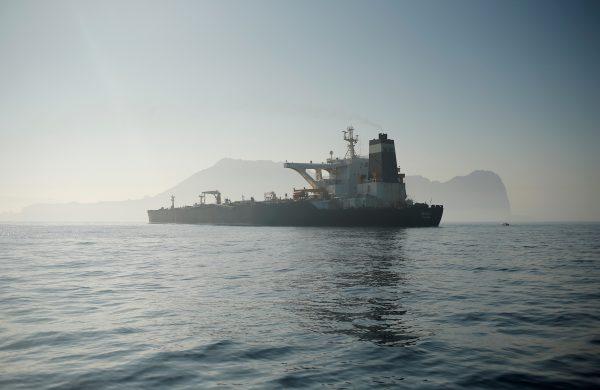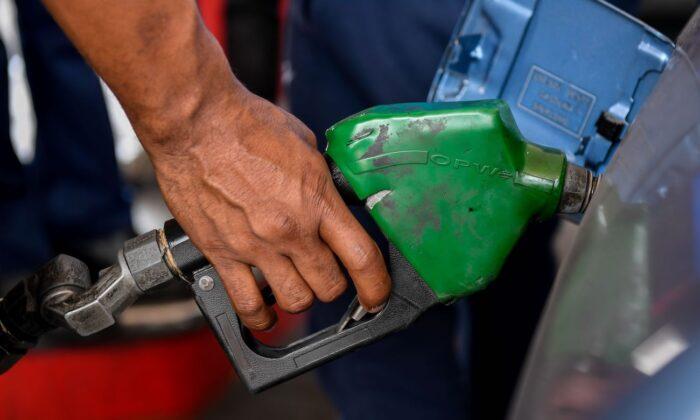MIAMI—U.S. federal prosecutors are seeking to seize four tankers sailing toward Venezuela with gasoline supplied by Iran.
“The profits from these activities support the IRGC’s full range of nefarious activities, including the proliferation of weapons of mass destruction and their means of delivery, support for terrorism, and a variety of human rights abuses, at home and abroad,” prosecutor Zia Faruqui alleges in the complaint.
The four tankers named in the complaint filed Wednesday—the Bella, Bering, Pandi and Luna—are currently transporting to Venezuela 1.1 million barrels of gasoline obtained via risky ship-to-ship transfers, prosecutors allege. Of the four, the Bella is currently sailing near the Philippines, ship tracking data shows, while the Pandi appears to have turned off its satellite tracking system on June 29 after having spent two weeks between Iran and the UAE. The other two were last spotted in May—the Bering near Greece and the Luna sailing between Oman and Iran.

“A warrant for arrest and civil forfeiture complaint are merely allegations,” the announcement noted.
The Trump administration has been stepping up pressure on ship owners to abide by sanctions against U.S. adversaries like Iran, Venezuela and North Korea. In May, it issued an advisory urging the global maritime industry to be on the lookout for tactics to evade sanctions like dangerous ship-to-ship transfers and the turning off of mandatory tracking devices—both techniques used in recent oil deliveries to and from both Iran and Venezuela.
On Thursday, the U.S. Treasury Department lifted sanctions on eight vessels that were recently found to have transported Venezuelan crude. The move followed an attempted auction Wednesday by federal marshals in Houston of 100,000 barrels of gasoline seized from a Greek-managed ship whose owner suspected the cargo was heading toward Venezuela. None of the five parties at the auction agreed to the minimum $2.5 million bid.
As commercial traders increasingly shun Venezuela, Nicolás Maduro’s socialist government has been increasingly turning to Iran.
In May, Maduro celebrated the arrival of five Iranian tankers delivering badly needed fuel supplies to alleviate shortages that have led to days-long gas lines even in the capital, Caracas, which is normally spared such hardships. Despite sitting atop the world’s largest crude reserves, Venezuela doesn’t produce enough domestically-refined gasoline and has seen its overall crude production plunge to the lowest in over seven decades amid the ongoing crisis and fallout from U.S. sanctions.
The flotilla’s arrival angered the Trump administration, which struck back by sanctioning the five Iranian captains of the vessels.
One of the companies involved in the latest four-tanker shipment to Venezuela, the Avantgarde Group, was previously linked to the Revolutionary Guard and attempts to evade U.S. sanctions, according to prosecutors. An affiliate of Avantgarde facilitated the purchase for the Revolutionary Guard of the Grace 1, a ship seized last year by Britain on U.S. accusations that it was transporting oil to Syria.

Iran denied the charges and the Grace 1 was eventually released. But the seizure nonetheless triggered an international standoff in which Iran retaliated by seizing a British-flagged vessel.
According to the asset forfeiture complaint, an unnamed company in February invoiced Avantgarde for a $14.9 million cash payment for the sale of the gasoline aboard the Pandi. Nonetheless, a text message between Mandanipour and an unnamed co-conspirator suggest the voyage had encountered difficulties.
“The ship owner doesn’t want to go because of the American threat, but we want him to go, and we even agreed We will also buy the ship,” according to the message, an excerpt of which was included in the complaint.





